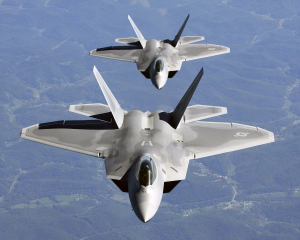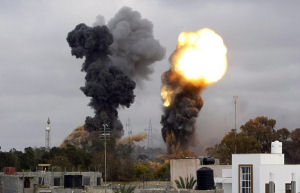
The legality of military action in Syria: humanitarian intervention and the responsibility to protect
It now seems fairly clear that the US and the UK are set to take military action in Syria in the coming days in response to the recent chemical attacks there. The UK Prime Minister, UK Foreign Secretary and the UK Secretary of State for Defence have all asserted that any action taken in Syria will be lawful. But on what grounds will military action in Syria be lawful. As is well known, United Nations Charter prohibits the use of force in Art. 2(4), as does customary international law. The UN Charter provides 2 clear exceptions to the prohibition of the use of force: self defence and authorization by the UN Security Council. It is almost certain that there will be no Security Council authorization. In a previous post, I considered the possibility of a (collective) self defence justification for the use of force in response to a use of chemical weapons. The scenario contemplated then is very different from the situation that has emerged, and the language used, at least by the UK, does not hint at a use of force on the basis of national interest. However, President Obama in a CNN interview last week did seem to speak of self defence when he said “there is no doubt that when you start seeing chemical weapons used on a large scale … that starts getting to some core national interests that the United States has, both in terms of us making sure that weapons of mass destruction are not proliferating, as well as needing to protect our allies, our bases in the region.” A justification for force on this basis would sound like preemptive self defence in a way that is very close to the Bush doctrine. I find it hard to see the Obama administration articulating a legal doctrine of preemptive self defence claim in this scenario.

Will the UK Terminate the Diplomatic Status of Ecuador’s Embassy?
Ecuador has announced that it is granting asylum to Julian Assange, the Wikileaks founder, who has taken refuge in Ecuador’s embassy in London. Assange sought refuge in the Embassy after the UK Supreme Court ruled a few weeks ago that he may be extradited to Sweden where he is wanted for trial on allegation of committing sexual offences. In this dispute there are some points in the UK’s favour. It is fairly clear that Assange is not covered by Refugee Convention and is therefore not entitled to asylum as a matter of international law. That Convention does not apply to persons in respect of which there are serious reasons to believe they have committed a serious non-political crime (Art. 1(F)(ii)). Furthermore, as Matthew Happold pointed out in …

Which Entity is the Government of Libya and Why does it Matter?
In the past couple of days, Germany and Canada have joined the group of countries that have declared that they consider the National Transitional Council (NTC) in to be the “legitimate representative” of the Libyan people. But what exactly does this mean? According to the BBC, the group of countries extending this recognition includes France, the UK, Italy, Spain, Germany, the UAE, Qatar, Jordan, Gambia, Senegal and Australia. Russia and the United States have had meetings with the NTC and have also made similar declarations about the illegitimacy of the Gaddafi regime and about the legitimacy of the NTC (see previous post by Stefan Talmon on the US position in March). What are the legal implications, if any, of these …
Does SC Resolution 1973 Permit Coalition Military Support for the Libyan Rebels?
In his post of 30/03/11, Marko notes the debate surrounding whether the Coalition now taking military action in Libya can arm the rebels fighting in that country. This question is perhaps part of a broader question of whether the coalition can provide other military aid to the rebels, for example, by providing close air support for rebel advances into towns under the control of Col Gaddafi’s forces. As Marko notes, while the US and UK have both denied that they have made a decision to provide arms to the rebels (see here and here), they have both argued that providing arms to the rebels would not be a breach of the arms embargo imposed by Security Council Resolution 1970. In fact media reports today …
What does UN Security Council Resolution 1973 permit?
I spent much of yesterday conducting interviews with the media about the situation in Libya. One of the questions I was repeatedly asked concerned the scope of the UN Security Council Resolution 1973 which authorises the use of force in Libya. How far does the resolution permit the coalition now acting in Libya to go? What are the objectives of the coalition military action? Does it permit the targeting of Colonel Gaddafi? The objectives set out by the resolution seem to me to broader than what is commonly thought. Para. 4 which authorises the use of all necessary means (short of an occupation force) is not just about protecting civilians but also, importantly, about protecting civilian populated areas under threat of attack. In other words, that paragraph authorises the use of …










